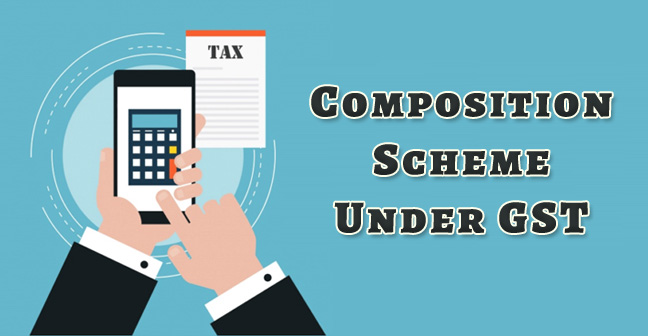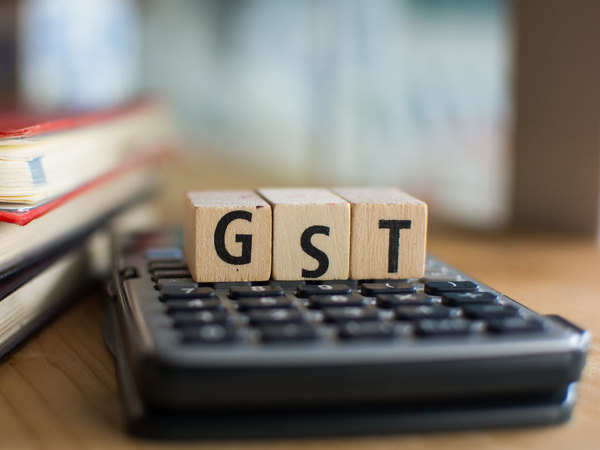Frah Saeed, Advocate
Co-Founder Clearmytax.in

- Introduction
As per Insolvency and Bankruptcy Code, 2016(“IBC”), once an entity defaults certain threshold amount, Corporate Insolvency Resolution Process (“CIRP”) gets triggered and the management of such entity (Corporate Debtor) and its assets vest with an interim resolution professional (“IRP”) or resolution professional (“RP”). It continues to run the business and operations of the said entity as a going concern till the insolvency proceeding is over and an order is passed by the National Company Law Tribunal.
To address the specific issues of such entities under CIRP, Notification No.11/2020- Central Tax, dated 21.03.2020 has been issued by the Government prescribing special procedure under section 148 of the CGST Act, 2017 for the corporate debtors who are undergoing CIRP under the provisions of IBC and the management of whose affairs are being undertaken by IRP/RP.
The special procedure is to be followed from the date of the appointment of the IRP/RP till the period they undergo the CIRP. Subsequent upon issue of Notification No. 11/2020 – Central Tax dated 21.03.2020, amendment has been made therein vide Notification No. 39/2020- Central Tax, dated 05.05.2020. Further in order to clarify certain issues in this regard Circular No.134/04/2020-GST dated 23.03.2020 and Circular No.138/08/2020-GST dated 06.05.2020 have been issued.
For ready reference of the readers the special procedure after incorporating the amendment and clarifications thereon are discussed in the succeeding paras.
2. Registration
The said class of persons shall, with effect from the date of appointment of IRP / RP, be treated as a distinct person of the corporate debtor, and shall be liable to take a new registration (hereinafter referred to as the new registration) in each of the States or Union territories where the corporate debtor was registered earlier, within thirty days of the appointment of the IRP/RP:
However in cases where the IRP/RP has been appointed prior to the date of this notification, he shall take registration within thirty days from the commencement of this notification, with effect from date of his appointment as IRP/RP.
2.1 Should a new registration be taken by the corporate debtor during the CIRP period?
Circular No.134/04/2020-GST dated 23.03.2020 clarifies that the corporate debtor who is undergoing CIRP is to be treated as a distinct person of the corporate debtor and shall be liable to take a new registration in each State or Union territory where the corporate debtor was registered earlier, within thirty days of the appointment of the IRP/RP.
Further, in cases where the IRP/RP has been appointed prior to the issuance of notification No.11/2020- Central Tax, dated 21.03.2020, he shall take registration within thirty days of issuance of the said notification, with effect from date of his appointment as IRP/RP.
2.2 COVID-19 relief granted
Vide notification No. 39/2020- Central Tax, dated 05.05.2020, the time limit required for obtaining registration by the IRP/RP in terms of special procedure prescribed vide notification No. 11/2020 – Central Tax dated 21.03.2020 as discussed above, has been extended. Accordingly, IRP/RP shall now be required to obtain registration within thirty days of the appointment of the IRP/RP or by 30th June, 2020, whichever is later.
The above has been clarified vide Circular No. 138/08/2020-GST dated 06.05.2020.
2.3 Should the GST registration of corporate debtor be cancelled?
It has been clarified vide Circular No.134/04/2020-GST dated 23.03.2020 that the GST registration of an entity for which CIRP has been initiated should not be cancelled under the provisions of section 29 of the CGST Act, 2017. The proper officer may, if need be, suspend the registration. In case the registration of an entity undergoing CIRP has already been cancelled and it is within the period of revocation of cancellation of registration, it is advised that such cancellation may be revoked by taking appropriate steps in this regard.
2.4 Whether registration need to be obtained again, if RP is not same as IRP
Another doubt has been faced is that Notification No. 11/2020 – Central Tax dated 21.03.2020 has used the terms IRP and RP interchangeably, and in cases where an appointed IRP is not ratified and a separate RP is appointed, whether the same new GSTIN shall be transferred from the IRP to RP, or both will need to take fresh registration. In this regard clarification has been provided by Circular No. 138/08/2020-GST dated 06.05.2020 as under:
a. In cases where the RP is not the same as IRP, or in cases where a different IRP/RP is appointed midway during the insolvency process, the change in the GST system may be carried out by an amendment in the registration form.
Changing the authorized signatory is a non- core amendment and does not require approval of tax officer. However, if the previous authorized signatory does not share the credentials with his successor, then the newly appointed person can get his details added through the Jurisdictional authority as Primary authorized signatory.
b. The new registration by IRP/RP shall be required only once, and in case of any change in IRP/RP after initial appointment under IBC, it would be deemed to be change of authorized signatory and it would not be considered as a distinct person on every such change after initial appointment.
Accordingly, it is clarified that such a change would need only change of authorized signatory which can be done by the authorized signatory of the Company who can add IRP /RP as new authorized signatory or failing that it can be added by the concerned jurisdictional officer on request by IRP/RP.
2.5 No need for fresh registration where all prior period GST Returns have been furnished
The notification No. 11/2020– Central Tax dated 21.03.2020 was issued to devise a special procedure to overcome the requirement of sequential filing of FORM GSTR-3B under GST and to align it with the provisions of the IBC Act, 2016.
The said notification has been amended vide notification No. 39/2020 – Central Tax, dated 05.05.2020 so as to specifically provide that corporate debtors who have not defaulted in furnishing the return under GST would not be required to obtain a separate registration with effect from the date of appointment of IRP/RP.
Accordingly, it is clarified vide Circular No. 138/08/2020-GST dated 06.05.2020 that IRP/RP would not be required to take a fresh registration in those cases where statements in FORM GSTR-1 under section 37 and returns in FORM GSTR-3B under section 39 of the CGST Act, for all the tax periods prior to the appointment of IRP/RP, have been furnished under the registration of Corporate Debtor (earlier GSTIN).
3. Return
The said class of persons shall, after obtaining registration file the first return under section 40 of the CGST Act,2017, from the date on which he becomes liable to registration till the date on which registration has been granted.
3.1 Is IRP/RP liable to file returns of pre-CIRP period?
No. In accordance with the provisions of IBC, 2016, the IRP/RP is under obligation to comply with all legal requirements for period after the Insolvency Commencement Date. Accordingly, it is clarified that IRP/RP are not under an obligation to file returns of pre-CIRP period. (Circular No.134/04/2020-GST dated 23.03.2020).
3.2 How to file First Return after obtaining new registration?
The IRP/RP will be liable to furnish returns, make payment of tax and comply with all the provisions of the GST law during CIRP period. The IRP/RP is required to ensure that the first return is filed under section 40 of the CGST Act, for the period beginning the date on which it became liable to take registration till the date on which registration has been granted. (Circular No.134/04/2020-GST dated 23.03.2020).
4. Input tax credit
4.1 Availing of ITC of invoices bearing GSTIN of erstwhile registered person in first return
The IRP/RP shall, in his first return, be eligible to avail input tax credit on invoices covering the supplies of goods or services or both, received since his appointment as IRP/RP but bearing the GSTIN of the erstwhile registered person, subject to the conditions of Chapter V of the said Act and the rules made thereunder.
It is important to note that provisions of section 16(4) of the CGST Act (viz time limit for availing ITC) and rule 36(4) of the CGST Rules, 2017 (Restriction of credit in regard to invoices not uploaded by supplier in its GSTR-1) shall not apply to such persons.
In this regard it has further been stated by Circular No.134/04/2020-GST dated 23.03.2020 that the special procedure issued under section 148 of the CGST Act has provided the manner of availment of ITC while furnishing the first return under section 40.
The said class of persons shall, in his first return, be eligible to avail input tax credit on invoices covering the supplies of goods or services or both, received since appointment as IRP/RP and during the CIRP period but bearing the GSTIN of the erstwhile registered person, subject to the conditions of Chapter V of the CGST Act and rule made thereunder, except the provisions of section 16(4) of the CGST Act and rule 36(4) of the CGST Rules.
In terms of the special procedure under section 148 of the CGST Act issued vide notification No.11/2020- Central Tax, dated 21.03.2020 this exception is made only for the first return filed under section 40 of the CGST Act.
4.2 ITC availment by recipient of invoices issued using GSTIN of erstwhile registered person
Registered persons who are receiving supplies from the said class of persons shall, for the period from the date of appointment of IRP / RP till the date of registration as required in this notification or thirty days from the date of this notification, whichever is earlier, be eligible to avail input tax credit on invoices issued using the GSTIN of the erstwhile registered person, subject to the conditions of Chapter V of the said Act and the rules made thereunder, except the provisions of rule 36(4) of the said rules.
Further vide Circular No.134/04/2020-GST dated 23.03.2020 it has been clarified that Registered persons who are receiving supplies from the said class of persons shall, for the period from the date of appointment of IRP / RP till the date of registration as required in this notification or 30 days from the date of this notification, whichever is earlier, be eligible to avail input tax credit on invoices issued using the GSTIN of the erstwhile registered person, subject to the conditions of Chapter V of the CGST Act and rule made thereunder, except the provisions of rule 36(4) of the CGST Rules.
4.3 Refund of amount in cash ledger to erstwhile registration
Any amount deposited in the cash ledger by the IRP/RP, in the existing registration, from the date of appointment of IRP/RP to the date of registration in terms of this notification shall be available for refund to the erstwhile registration.
It has been clarified vide Circular No.134/04/2020-GST dated 23.03.2020 that any amount deposited in the cash ledger by the IRP/RP, in the existing registration, from the date of appointment of IRP / RP to the date of notification specifying the special procedure for corporate debtors undergoing CIRP, shall be available for refund to the erstwhile registration under the head refund of cash ledger, even though the relevant FORM GSTR-3B/GSTR-1 are not filed for the said period. The instructions contained in Circular No. 125/44/2019-GST dt. 18.11.2019 stands modified to this extent.
5. Dues of pre-CIRP period
It has been clarified vide Circular No.134/04/2020-GST dated 23.03.2020 that in accordance with the provisions of the IBC and various legal pronouncements on the issue, no coercive action can be taken against the corporate debtor with respect to the dues for period prior to insolvency commencement date.
The dues of the period prior to the commencement of CIRP will be treated as ‘operational debt’ and claims may be filed by the proper officer before the NCLT in accordance with the provisions of the IBC. The tax officers shall seek the details of supplies made / received and total tax dues pending from the corporate debtor to file the claim before the NCLT.
Moreover, section 14 of the IBC mandates the imposition of a moratorium period, wherein the institution of suits or continuation of pending suits or proceedings against the corporate debtor is prohibited.
A BIG THANK YOU to you for visiting our site and reading this article. Kindly provide your feedback on the above article in comment section below. Also please intimate about other GST issues on which you would require our team to pen down articles. Further doubts on GST may be lodged on “Your GST Queries” tab.Our GST experts will provide their opinion on the matter raised at the earliest.
You can also subscribe to our free newsletter to always be updated on GST Law by filling the subscription form at home page.
Frah Saeed is a law graduate specializing in the core field of indirect taxes and is the Co-founder of taxwallah.com. She has authored many publications on GST and is into full-time consultancy on GST to big corporates. She as a part of taxwallah.com heads a team comprising of Chartered Accountants and Advocates and plays a key role in our mission to disseminate GST knowledge to all.




3 thoughts on “Special GST procedure for entities in CIRP under IBC – CBIC clarification dated 06.05.2020.”
Comments are closed.